5 Myths About Professional Landscape Photographers
What makes you a professional landscape photographer? Is it the equipment you carry? Money you make? Or just the fact that you teach local photography classes? With the advent of digital photography, the line between professional and amateur photographers has blurred.
Myth #1: Pros shoot with full-frame cameras and only use the best, most expensive equipment.
Let’s face it. We’d all like to have great equipment. But the equipment doesn’t make the photographer. Although both Varina and I do carry the latest equipment such as a mirrorless camera, high-end lenses, Induro Carbon Fiber Tripods, Vu glass filters, and more… but the same equipment is also carried by most of our students. Professional photographers must learn to use the equipment they have as well as understand its shortcomings. Varina and I own crop-factor cameras as well as full-frame ones. We use the crop sensor cameras regularly because they work well for certain situations. We have several great L-series lenses, but we’re perfectly happy with a less-expensive lens if it meets our needs. Take a look at the shot above from Glacier National Park. I took this shot several years ago with a 3-megapixel crop-factor camera. That’s one gorgeous sky, isn’t it? Being a pro isn’t about your equipment. It’s about how you use it.
Myth #2: Pros make a full-time living from landscape photography.
We’ve heard many variations on this theme. Some people believe that a professional must exclusively work as a photographer. Some believe that a pro is someone who makes at least 15% of his income from photography. A few years ago, Varina worked full-time as a photographer with 100% of her income coming from our photography business. She’s clearly a pro, right? At the same time, I worked as a program manager for a company. My income from photography was less than 15% of my total income. Does that make me less of a pro than Varina? We taught together. We wrote eBooks together. We ran our business together – selling prints, teaching workshops, creating educational content, and speaking all over the world about landscape photography. We had similar skill sets. And yet, by some definitions, I wasn’t a pro. Obviously, this definition doesn’t make much sense in that situation.
Myth #3: A professional landscape photographer teaches on a regular basis.
Varina and I have been teaching workshops and at local photography events for years, but what about landscape photographers who do not teach? There are many different ways to make money from landscape photography (if that’s what it comes down to in the end). Selling prints in a gallery or at art shows, selling merchandise, working as a journalist, offering tours, selling images for stock or microstock… the list goes on and on. A lot of photographers who do teach workshops don’t make a full-time living from landscape photography, which takes us back to myth #2.
Myth #4: A pro has been published in print.
Here we are in the Internet age where the world of publication has changed dramatically. You no longer need an agent and you don’t need to go through a publishing company in order to see your work in print. Anyone can now be published. Varina and I have both been published in a variety of magazines and calendars and we also have a collection of self-published eBooks. Are they less legitimate because we published them ourselves? Do we really care? We put a lot of work into them and we do our best to make sure they are professionally presented and packed full of good information. Heck, we make good money selling them too so I guess it really doesn’t matter if they count as “real” publications or not, right? :) Also, many photographers don’t work with print media at all. If I sell my images at fairs or in a gallery, does that make me less professional?
Myth #5: A pro is sponsored by photography equipment makers.
Varina and I are both sponsored by several photography companies including Induro Tripods, Vu Filters, Smugmug, and F-Stop. We also have a working relationship with several other world-wide companies. But we were teaching workshops and being published long before we got sponsors. There are pro photographers who don’t have any sponsors yet they still make a full-time living from photography.
As you can see, there is no single, clear definition of what it means to be a professional landscape photographer. It seems that we each make our own standards and that’s entirely okay. So, when someone catches you using your smart phone to take a photo and comments about how you need a “real” camera to become a professional photographer, you can simply smile and continue to do what you do best… take great photos.

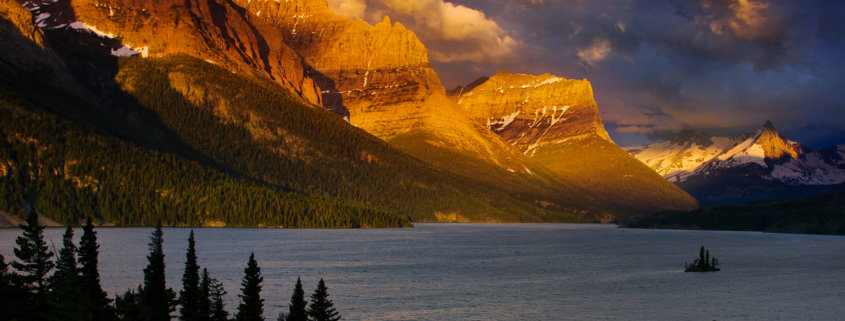

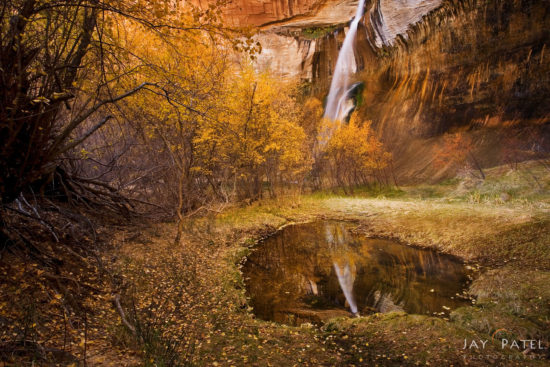

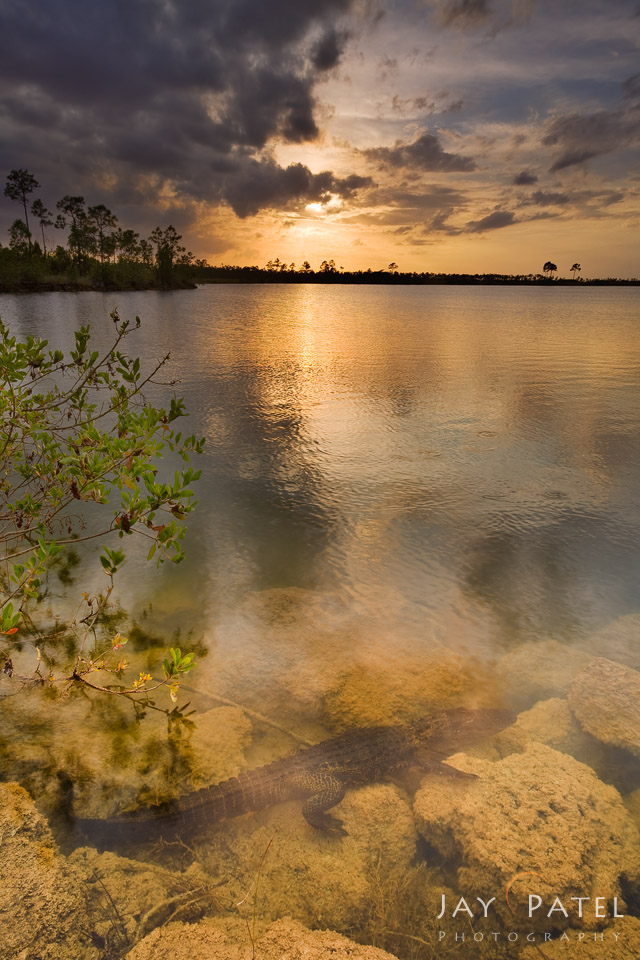
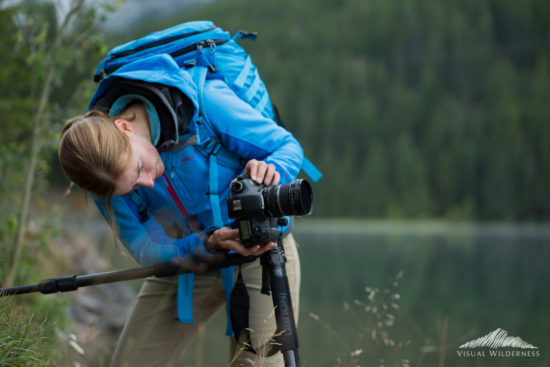
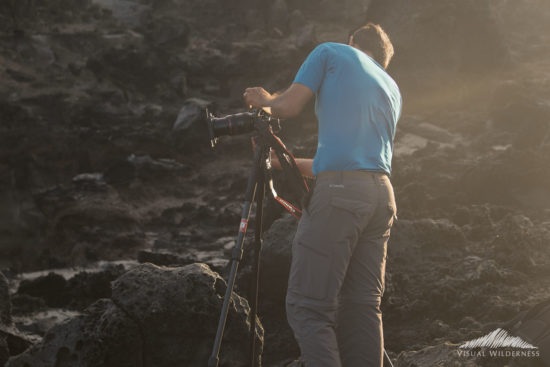


This is an interesting question and the one that I cant answer in a comment. I can give you starting point – First decided how you want to make money (prints sales, eBooks, workshops, licensing prints, calender’s)….then figure out if the comments and like you get on Facebook and your website are from the customer or just admirers who are likely not going to be your customers. After this, you need to create a marketing strategy to attract customers.
A6300 is a great camera and will serve you very well. We have Fuji cameras as well, but if I have to choose one, I would go with Sony because their sensors are far better in terms of dynamic range…and the camera is very flexible to use with lots of customization. If you an afford it go with a full frame a72II if you are not into photographing wildlife.
Jay, thanks so much for answering my question and providing your recommendations.
Very good article Jay
For me what makes a “pro” is the art quality of his photography, whether it’s sports, portraits, nature or landscapes, the time as a photographer, well once I told a friend that so and so had 20 years experience, and he responded ” I’ll rather say he has 1 year multiplied by 20″, so to me the time does not count, nor the money you make, you may be a great photographer but a lousy businessman, or vice versa. I have been photographing with passion for over 40 years, and still learning, and not only on all the new gadgetry, but on light, composition etc.
My only envy to the real pros (like you Jay) is that you have much more time to spend on it, while I can only scratch bits here and there to go and take some shots.
But there again that is well meant envy, as I admire and study your work and that of others with the gift of art in their photography.
Alberto
albertorada.com
True that we have more time to spend on it…but sometimes we just want to not do work as a Pro and go shooting. It is balance that can be easily tipped to not liking the photography if you are under the constant pressure of making a living from it. Just enjoy the fact that you can pursue your passion when you want to. :)
Jay I have been staying away from mirrorless cameras because in bright sun I cannot see the screen. What are you using and does it have an EVF? I continue with the 5D MK IV and 7DII
We use Sony Mirrorless Camera. Yes it has an EVF….and has an sunlight mode to make the Liveview easier to see (similar to smart phones).
Up until very recently, I used the top end M43 cameras and when the sun was too much, I literally just threw a sweater over my head like in the old days.
Interesting article. I recently entered a local competition and they considered me to be a Professional Photographer as I have sold some images on a stock site, I have developed a website to try to sell some of my images also, and I regularly enter my work in on-line competitions. I don’t consider myself anywhere near a “Professional”. I am self-taught, reading books, magazines, subscribe to a number of photography sites and google information, and the purpose for entering on-line competitions is to gain feedback on my images (I have seen the comment made that someone shouldn’t even call themselves a “Photographer” if they don’t have any formal qualifications!). I try to sell a few images to help fund my hobby as it is an expensive one. My passion is nature photography, and I try to get out as much as I can to practice and because I love it. I do not yet have the knowledge and experience to be able to consistently capture great images, but even then, should I call myself a “Professional”? I know photographers who are absolutely amazing. Their images are just incredible. They even occasionally get images published in the paper, or they might sell an image. But they don’t consider themselves “Professional” Photographers. They just love taking photos and are very good at it. I think there needs to be a much wider definition for someone to be considered a “Professional” Photographer eg; 1) knowledge and experience (not necessarily formal qualifications) to be able to consistently capture quality images; 2) earning an income from sale of images / books and/or workshops / photography shoots (not necessarily as a full-time occupation); 3) describing (advertising) themselves as a “Professional Photographer” (not necessarily as a full-time occupation) and/or acknowledgement in media as “Professional Photographer” (not just publishing an image). In my case, I would only meet one of those criteria (No 2). The friends I referred to above would meet No 1 and 2, but not No 3. I guess in a nutshell, I think that to be a Professional Photographer, you have to consider yourself one, and be recognised as such by the wider photography community.
Very nice article, although it is sad that we need labels to define ourselves. It is however the world we live in.
I have to disagree in part with myth #1. Yes “PROs” might have less than the best equipment as well as the best, and use them occasionally to create beautiful art because of their talent and experience, but they all still have the best equipment. To claim otherwise is disingenuous. I still have my D50, and have made some winning shots with it, but I’m not grabbing it over my full-frames for anything serious, since I also have them. I realize you are trying to encourage people that creating art is not reliant upon equipment, but the truth is that most photographers who consistently create art have the good stuff. Yes your example shot on the 3 MP camera is a great shot. It captures awesome conditions, and a deep blue sky behind the clouds that balances your composition perfectly, all things that are not reliant on equipment. But is the 3 MP your “Go to?”
Thank you once again for excellent writing and caring so much!
PS That waterfall at Calf Creek is something isn’t it!
There was a time when my 3MP camera was my “Go to” camera. And Varina went Pro with a lowly Canon XTi….She was a full time photographer with that camera. Even today we will routinely shoot with Sony a6000 or a6300 even though we have Sony a7rII. And we have even sold prints from a smart phone. ;)
Yes…I love Calf Creek Falls. I have hiked there more then once. Thanks for your kind words.
I consider myself a professional since I do make some money from my photography and teach lessons. My “go to” is a Nikon D7000, several years old and not a Pro model body. You wont find a 70-200 2.8 in my bag either. I have chosen to spend money on travel rather then gear in order to build more variance in my portfolio. Does that make me less of a professional?
Not really…Only photographer with egos care about being labeled Pros. As long as you like what you are doing, keep doing it. :)
The simple definition of “pro” is “one who gets monetary compensation for their production.” I had a judge at our county fair try to argue that ANY money from photos was a “pro” (I pointed out that, by that definition, anyone who had ever placed at a previous fair was a “pro” and such an interpretation would restrict photography exhibits to “maidens”). Our fair officially defines a “pro” as “at least 50% of income from photography.” Which is somewhat awkward if you’re an author (especially of craft books) that does her own photography: How much of the income from a (non-photography) book counts toward “photography income”?
I am still a neophyte. Thanks for the tips, Etc.
“Pro” is not an indication of quality. There are “Pros” out there that create crap images and there are people who will buy them. Conversely, there are “amateurs” out there, that don’t make a dime, but are creating some of the most compelling and beautiful images you can imagine. Look at the person’s work, not the label attached to them.
Could not have said it better myself.
Nope. Quality has nothing to do with the definition, no matter what people think. You can produce absolute brown stuff, and if people are willing to buy it, you’re a pro.
Of course in the “good old days” it was said that a professional photographer was someone who could blow without spitting.
An interesting discussion and the thought of labeling someone a pro or not seems silly. However I would caution that when needed for an assignment, wedding etc, hiring someone who is a “professional” is highly recommended. What exactly does that mean? I’m not sure anymore, but you want to be careful that you do your homework on the individual and ask for examples, references etc. Insurance, certifications and legal documents all help to identify someone who is legitimate and serious about their craft.
I shoot primarily landscapes, run workshops and shoot corporate and advertising assignments. But I would not dream of shooting something like a wedding. I might assist someone but I know that I don’t have enough experience shooting weddings to feel like I would do it justice.
Good discussion.
Thank you for placing a concise article in regards to the public perception what a pro photographer is. In my case I carry many a low price cameras if that’s what takes for a given situation. I think there is this illusion besides having the latest and greatest equipment, that a person will walk into the photographers studio and be over-whelmed by the artistic factor.
What a pro does is work, and how the job accomplished varies from photographer but the illusion that society in general as placed on a “Pro” is not only misleading but a falsehood.
Again thanks,
Ray
I think the most glorious time to live as pro-photographer was 30 or 40 years ago, when you could go to a country like Africa and come back with never seen wildlife-and landscape photos. There where less photographers and less photos compared to todays time. Now, with the organized tourism, anyone can get the chance to take photos on nearly any place of the earth. It was my dream that time, when I was teenager, but I didnt get the chance to realize it…
Today, all I want is to take photos, to bring my impressions, ideas, feelings and sights to prints and to realize the best quality photos I will be able to. Its my personal challenge, just for myself. Of course it would be great to get an Wow-effect from people, but if not, its ok also.
Im not interested either to show fancy equipment and machinegun-camerabodies as many like to do. Im not a pro and no need to do as if.
Oh, and about the question if you Varina and Jay are PROs or not…
Watching your amazing beautifull, meditative works, shows clearly that you are not simply PROs but MASTERS of photography.
Thanks for the comment. Pros, MASTERS are just labels. We just enjoy taking photos. ;))
15%? I am so totally a PRO then ;) I heard some time ago that the submissions rules for contests were 51%. I kind of went by that until I heard a statement posted on G+ and it made a lot of sense.
A Pro is one who can recreate the same image, given the same situation time and again. This is all about knowing your equipment and it’s abilities and inabilities just like you stated above.
Thx for posting Jay!
Michael,
Sometimes I feel that making money at things you like to do is a best way to loose passion for it. I would rather make small income from photography and love it…even if this means I am NOT a PRO. ;)))
Exactly, the true definition of a pro photographer is defined by your skill and knowledge of your craft and the equipment you use. I use a 20 year old camera and a 7 year old camera. Your equipment doesn’t define your skill level nor does the income you make from it. I’ve shot with many different types of cameras, T6i, 70d, 80d Canon, sony, Olympus, nikon D3000 etc . I shoot regularly with a Canon SX40 hs Powershot and have found I am much more creative when I use low quality equipment.
https://uploads.disquscdn.com/images/d476ac3d8f069bb45cc264d1267852d9b5e763a430c4d35f8d2469898b0c3c46.jpg
Nice work.
Thank you.
Nice. It’s a shame how so many people get caught up with self-assigned labels and immediately pre-judge based on those assumption. Calling oneself a professional surely doesn’t always come packaged with image quality.
Agreed. Our philosophy is to showcase image quality and then let other decided if they want to consider you PRO or not. And if they choose not to do so it we just enjoy the process of taking photographs.
Good article. In my opinion, then a professional is a professional, if he can present images day after day in his own visual language and the highest quality. This means that each picture brings a wow effect on the viewer. Continuity in the image quality is probably the most difficult in photography. The equipment is certainly not relevant.
Keep up with your great blog. Many of your articles and ebooks have already helped me to improve my way in photography.
Cheers, Stefan
Stefan, Thanks for the comment. We will try our best to keep bringing interesting articles.